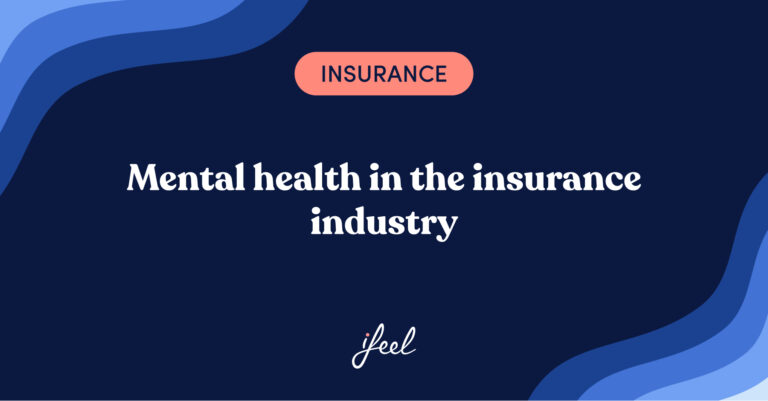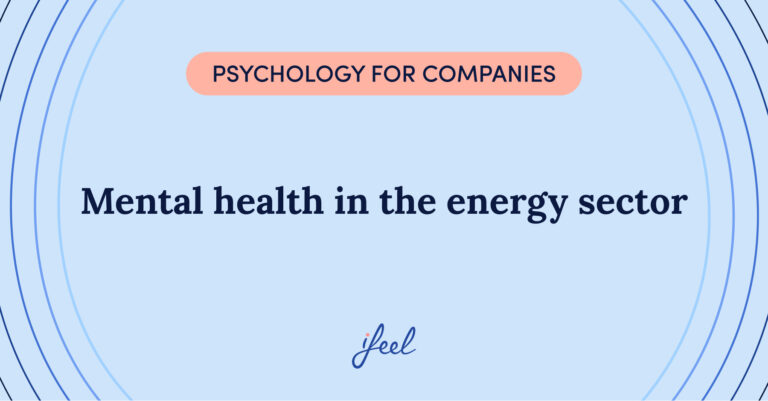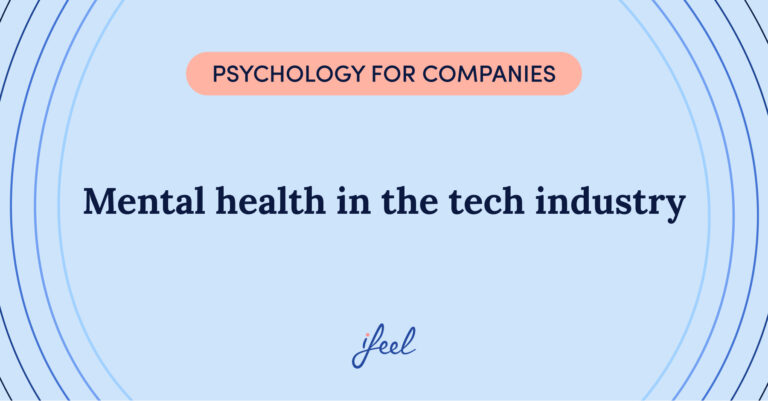Have unemployment and mental health affected your well-being? Those who have experienced it know it well: unemployment and mental health are two aspects of life that sometimes take a lot of effort to harmonise.
People who have never experienced the unemployment and mental health combination, or have only experienced it for a short time, tend to misinterpret it: they think that being unemployed is a kind of vacation period in which the individual is free from work-related stress, is rested, and has a lot of free time to enjoy just because they are not working. However, those who have gone through long periods of unemployment or are doing so right now know that unemployment and vacations have very little in common.
Each unemployed person lives the experience in their own way and there can be great differences depending on the circumstances of each one. Age, family or economic burdens, level of education, among others, are factors that can have a negative or positive influence on the already difficult experience of being unemployed.
Of course, there are also the psychological characteristics of each person: if we are more pessimistic and anxious, we will have fewer prospects of finding a new job soon, making us feel worse. On the other hand, if the job we have lost was important to us or we liked it very much, the subsequent mourning process will be more difficult than if we hated that job.

As we mentioned before, the job search process can be really long, so it is important not to get burned out by rushing through the search and, above all, to be very systematic and orderly with the steps we take in order to carry it out. The active job search is not something that is improvised on the spot, it is not “I’ll do it, I’ll see what comes out”. If possible, it should be approached as a strategy that starts from an objective and sets out a series of specific actions to achieve it, which we take note of to be able to evaluate the results periodically.
However, when months or even years go by without being able to return to a professional career at all or only through minor and satisfactory jobs, the unemployed person’s mental health suffers. The job seeker needs to put in place a series of defense mechanisms, completely healthy and necessary, to be able to cushion the number of denials, frustrations, or worries that they will experience during the process.
Below we explain how unemployment affects mental health and the main effects that a prolonged process of unemployment can have on people’s psychological well-being, especially in a situation of economic crisis.
Unemployment and mental health
1. Deterioration of self-esteem
Work structures and our daily lives keep us active and socially integrated and provide us with a livelihood, a project, and a certain status.
Losing a job and taking a long time to get it back has a negative impact on our self-esteem because we come to the conclusion that we are not valid: we are not good enough to qualify for a job considered “quality” for us. Self-esteem is, therefore, one of the areas where the combination of unemployment and mental health becomes explosive.
During the first weeks and months, we may interpret our situation in terms of the circumstances: it is not my fault, there is an economic crisis; I am good, but there is also a lot of competition; it is not bad luck, we just need the vacations to end, the school year to start, this or that law to be approved…
Unfortunately, as time goes by, the balance starts to weigh more on the personal side: I’m not a good candidate, I’m outdated, I don’t know how to look for a job, do I lack qualities?
No one likes to get a no for an answer. It is a source of frustration, as desires or expectations are not fulfilled. In the case of job seekers, refusals are directly interpreted as an amendment to the whole: “I have not been a good enough candidate to be chosen or considered for the position. My qualities have been deemed insufficient when compared to those of the other candidates.”
These statements are very realistic, they are a true fact, but they need to be contextualised along with other considerations such as: “I don’t really know what they were looking for. Just because they rejected my application doesn’t mean it was completely bad, it just didn’t fit this particular offer. There are many factors that explain their decision that are slipping my mind”.
Obviously, when we receive one or two refusals nothing happens, the problem for self-esteem comes when we are rejected again and again, in offers of different types. Then the interpretation that the problem is me, I am not good enough, or that I am not capable of bringing myself to the world of work begins to take over.
2. Negative mood
As the months go by without finding a single sign that the search is going well or that “something is happening” in the labor market, we gradually fall into a state of hopelessness, pessimism, and demotivation that can become complicated in the form of real clinical depression.
In addition to the natural feeling of discouragement and frustration, the experience of learned helplessness is very common among the long-term unemployed. This is a state of helplessness in which the person comes to the conclusion that, whatever they do, they have no influence on their ability to find a job and are solely dependent on what circumstances have in store for them.
3. Increase in anxiety
Although it varies greatly from person to person, it is likely that when someone has been unemployed for a long time they will experience increased anxiety, especially if their baseline physiological trigger was already prone to be high.
When we speak of increased anxiety, which is often closely linked to a negative mood, we are referring to a state of physical restlessness, difficulty in resting and relaxing, anticipatory fears, anguish in the face of uncertainty, and lack of favorable signs, etc.
We cannot forget that unemployment is, among other things, a period in which the person spends a lot of time alone or “refocusing” on their thoughts, asking themselves questions about the future that is not at all relaxing: will I go back to work someday, when will I find a job, will I keep my job after being furloughed, will my working conditions worsen in the future?
4. Confusion regarding identity
It is not that we live completely detached from reality when we are unemployed, but the loss of a job has a negative impact on our identity precisely because, when we had a job, our job provided a lot of content to our identity. The issue of unemployment and mental health is also literally about who we are.
We always tend to define ourselves first and foremost by the work we do, by the job we have. If you notice, it’s one of the first things we communicate to others that “we are” and it’s one of the first things that comes up in conversations when we meet our friends.
When we lose our job there is a fracture in the label that defines us and we have to find a new one that is not uncomfortable, painful, or embarrassing. Yes, many people who have been unemployed for a long time are embarrassed to say it in front of others, so they have to hide it to remain “presentable”, even if it is strictly at a job placement level since when looking for a job it is not “good” to say that you have been out of work for a long time.
5. Social exclusion
Although we often say that our coworkers are not our friends, other times the people we work with do form an important part of our close emotional circle.
Even when they are not, they are the people with whom we spend the most time and share the most interactions on a daily basis. Moreover, even if we work remotely, employment literally or symbolically takes us out of the solitude of our domestic reality, connects us with other people and other realities, keeps us active in many ways.
Work and what happens to us at work is what we tell our friends and family when we see them. Work is what gives us a paycheck that we can then use to participate in various parts of life. When all of that disappears over a long period of time, the person loses much of their link to the “outside world” and there can be a great sense of disconnection, loneliness, and inability to participate in the life that others do participate in.
How to take care of your mental health when you are unemployed
In some situations, things get so complicated that harmonising unemployment and mental health seems like an impossible task. However, within each individual’s particular circumstances, it is essential to introduce some elements to soften the impact that a situation of unemployment, especially a prolonged one, can have on the psychological well-being of the individual. Here are ten tips to help you deal with unemployment and mental health.
| How to Manage Mental Health During Unemployment | Description |
|---|---|
| Redefine Your Identity Positively | Focus on personal strengths and skills beyond your job role to build a new sense of self-worth. |
| Maintain Hope and Communicate Your Situation | Stay positive and talk about your experiences with friends, family, or support groups. |
| Engage in Self-Care and Social Integration | Prioritise physical and mental well-being through exercise, hobbies, and maintaining social connections. |
| Conduct a Systematic Job Search | Approach job hunting methodically, setting goals and maintaining a routine. |
| Seek Professional Help if Needed | Consult mental health professionals if experiencing severe stress, anxiety, or depression. |
As mentioned above, unemployment and mental health is a complicated combination, as unemployment is a very challenging experience for anyone’s psychological health. If you are in this situation right now, it is important to maintain hope for the future and stay connected to your social media support networks, in addition to conducting an active job search. If you see that this is not enough and your well-being is beginning to be in jeopardy then perhaps it is time to seek specialised help.
The leading mental well-being solution
Ifeel has developed a mental well-being solution for organisations, designed by its team of expert psychologists with one main objective: to help companies put employee health at the heart of their strategy to boost sustainable productivity.
Thanks to this partnership, the people in charge of HR departments can receive personalised, data-driven advice on how to make good decisions in a company to get the most out of the teams they are in charge of and take better care of the psychological well-being of the people in them.
On the other hand, this program offers employees a holistic mental health care service structured at different levels according to their needs. This service includes, if required, online psychological therapy with a psychologist specialised in cases like theirs. Try our program now so you can see how it could help you.
We hope you found this post about unemployment and mental health interesting. If you would like more information about our mental well-being solution for organisations, simply request it and we will contact your team as soon as possible. You may also be interested in this post about the advantages of using ifeel’s workplace mental health platform.











